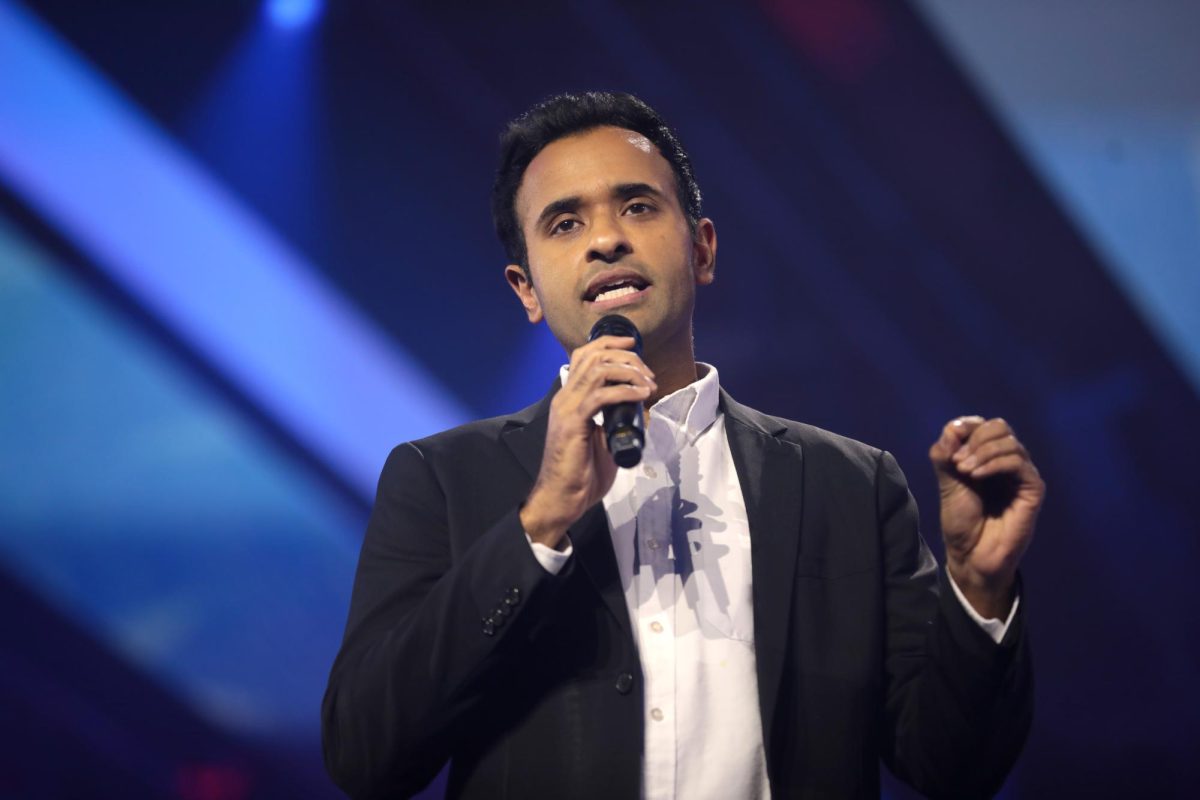Vivek Ramaswamy is not your typical (former) Presidential candidate.
At just 38 years old, and without any political background, Ramaswamy defies the conventional notion of what makes a successful candidate. And yet, at the height of his campaign in Aug. 2023, he held a relatively strong 11.6% popularity in national polls.
Nevertheless, Ramaswamy has achieved that success, absent any specific policy stances. Long gone are the days of fiscal conservatives or limited government advocates. The former bulwarks of the conservative movement in the US have been cast aside, with the likes of Mitt Romney, Liz Cheney and Colin Powell being swept away by a seemingly unstoppable tide of change.
This is not a good thing.
Rather than a surge in support for the opposing Democratic party and liberal policies, America has seen the development of a concerning trend in national politics, and the secret to Ramaswamy’s success – the explosive growth of a third “segment” of American politics, one birthed from the darkest elements of the Republican party, and which blatantly embraces conspiracy theories and fear-mongering as tools for political success.
In a style that is often associated with that of former President Donald Trump, Ramaswamy openly supported baseless ideas including the “Great Replacement Theory” (a widely debunked theory that there is a deliberate plan to replace white populations with non-white immigrants, often fueled by far-right and white nationalist ideologies) and the claim that the Jan. 6 2021 insurrection was a federal operation engineered by the Democratic party to entrap “peaceful protesters” at the capital – specifically saying during the fourth Republican presidential debate “Why am I the only person on this stage, at least, who can say that Jan. 6 now does look like it was an inside job?”
Ramaswamy, throughout his campaign, made it a point to demonize traditional news media, both to de-legitimize his critics and to draw in political support from those who were disenfranchised and previously shunned in response to their White Supremacist leanings. A frighteningly common talking point during Ramaswamy campaign events was that the threat posed by White Supremacist and nationalist movements is massively exaggerated by the media, going so far as to say “Was there a point in our prior national history where there have been vicious forms of anti-Black or anti-Brown discrimination in this country, after the Civil War and otherwise? Yes. But you’re looking in the rearview mirror” at a rally in Iowa.
Much of the rhetoric pushed by Ramaswamy and Trump comes straight out of the playbook of radical right-wing media influencers such as Alex Jones (who is most recently famous for the bankrupting settlement regarding his claims that the 2012 Sandy Hook shooting was “staged”) or Nick Fuentes (who has on numerous occasions praised the likes of Adolf Hitler and the Taliban). Both of the above have voiced their support for Ramaswamy’s Presidential bid.
This new brand of politics, driven by fear and radical attention-seeking, not policy, has nothing to do with Ramaswamy, Trump or any other candidate specifically. Instead, Ramaswamy, far from being a smooth political operator or idealist, just so happened to be the latest (relatively) wealthy figure to recognize and take advantage of this trend. As the 2024 election continues, it has become increasingly obvious that he has been positioning himself for a high ranking spot on the Trump ticket. If he is successful in this bid, one can only expect more of this brand of radical, fear mongering candidates to take to the stage and attempt to capitalize on this trend in America towards reactivity and irrationality, a threat to Democracy as we know it, second only to the authoritarian leanings of former President Trump.


